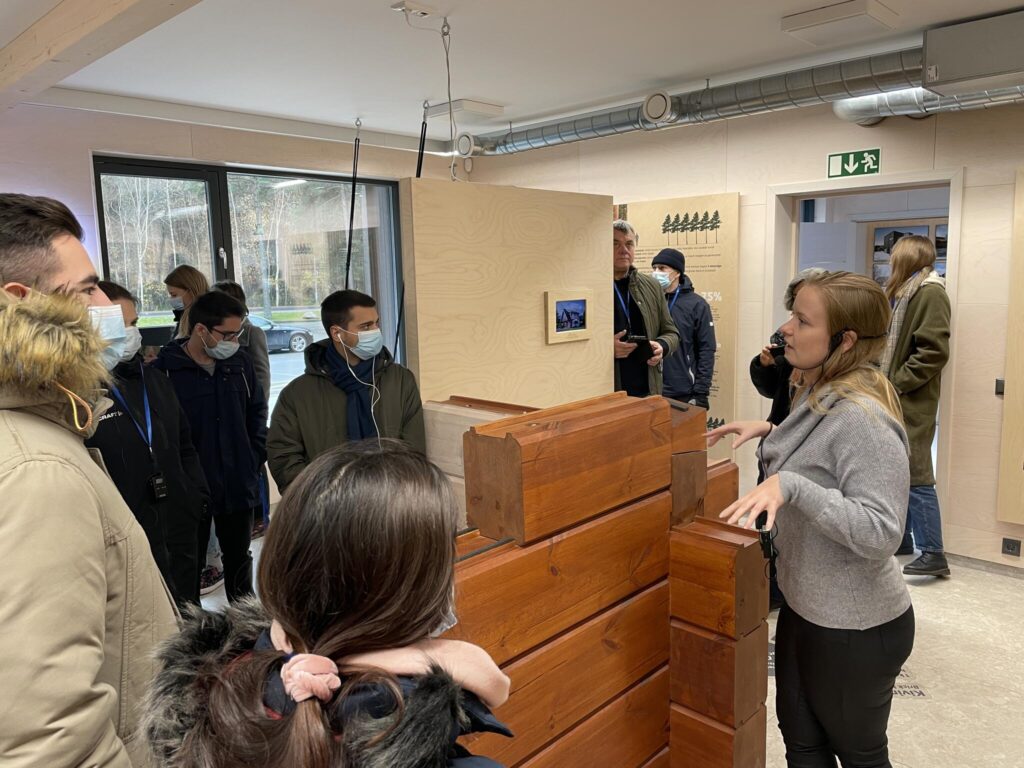In the years 2017-2020, the Civil Engineering Institute of TTK University of Applied Sciences took part in an Erasmus+ project named HiTimber (Sustainable High-Rise Buildings Designed and Constructed in Timber). In September 2020 they started a continuation project HiHTC (Sustainable, High-Performance Hybrid Timber Building Construction).
Using timber as a construction material is becoming more and more popular – in the near future, timber buildings will form a much bigger part of the built environment. Timber buildings will be designed and constructed with sustainable, high-performance engineered timber components. However, some amount of steel and concrete construction materials will remain to satisfy structural, fire prevention, moisture absorption and economic requirements. Combining wood, concrete and steel will provide sustainable solutions to building structures.
Architects and engineers have already started designing hybrid timber buildings, however, higher education mostly focuses on steel and concrete buildings. In order to satisfy the needs of the employment market, it is necessary to prepare both the students and trainers with innovative applied skills in the area of design, construction and onsite construction management of high-performance hybrid timber buildings and this is what the project aims to fulfil.

The project involves higher education institutions from five countries – France, Lithuania, Portugal, Poland and Estonia. The coordinator is Claude Bernard Lyon 1 University from France. The project team of TTK UAS involves Karin Lellep (the project coordinator), Martti Kiisa, Lauri Peetrimägi, Pille Hamburg, Leena Paap and Egert-Ronald Parts.
During the project, a total of 7 workshops will take place. Three of them are 2-week long intensive courses for students of the partner institutions that will be carried out using project-based and blended learning. The first workshop took place from the 25th of October to the 5th of November 2021 in TTK UAS in Tallinn, Estonia. The next ones will be held in 2022 in Gdansk, Poland and in 2023 in Lyon, France.
The most important outcomes of the project will be the mapping of competences necessary for students in design and construction of sustainable, high-performance hybrid timber buildings, compiling a 9 ECTS study module that meets the needs of both the higher education institutions and the employment market needs and creating an e-learning platform for the delivery of this module. Additionally, a 2-day international conference will be held in Lyon, France in 2023 where the results of the project will be presented.
Sponsors


